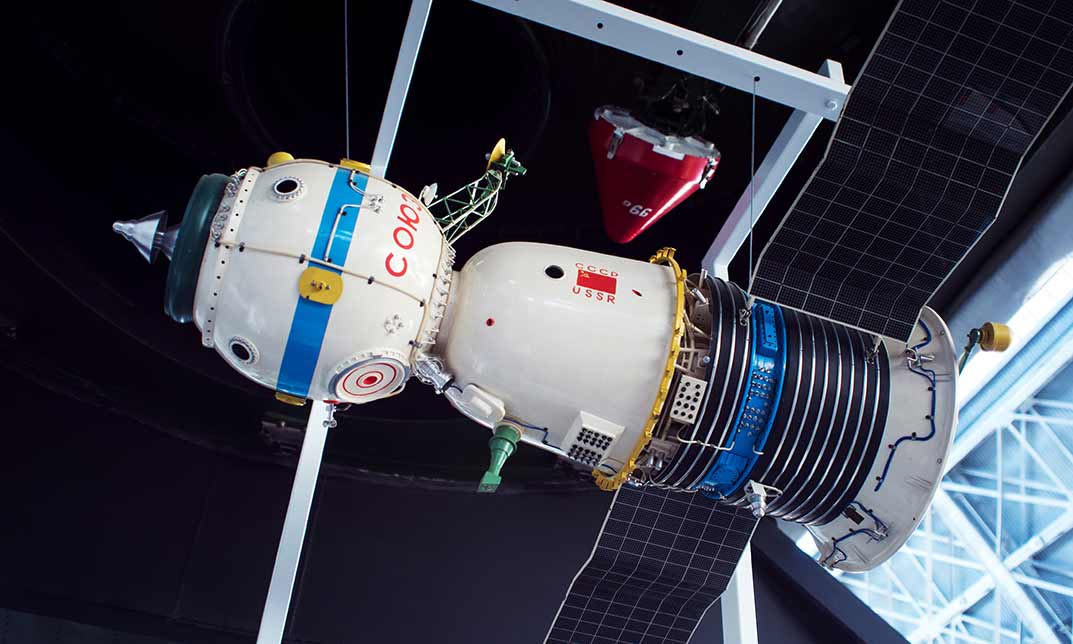 Course Highlights
Course Highlights
Our specialised course in Interplanetary Spacecraft & Satellite Engineering will take you on a space exploration. The core ideas and cutting-edge methods of satellite engineering are carefully crafted into this curriculum. Initially, the space environment will be taught to the students, who will learn about the various elements that impact spacecraft beyond Earth’s atmosphere, including vacuum, solar radiation, and microgravity. Laying the foundation for more advanced topics, these first classes highlight how satellite engineering is used in situations.
As the course progresses, students explore orbital mechanics, which is at the core of satellite engineering, learning about the launch, manoeuvring, and maintenance of spacecraft in orbit. Understanding the mathematical and physical models that forecast spacecraft behaviour is crucial for anyone hoping to succeed in satellite engineering, and this segment will help you do just that. The complexities of space propulsion systems are also covered in the course, illuminating the technology that send spacecraft throughout the solar system. Students get an understanding of the propulsion technologies that enable interplanetary flight, from chemical rockets to ion thrusters.
The technologies that enable spacecraft to navigate, communicate, and perform well in space are the main topic of the course’s last sections. In order to create dependable space power systems, accurate attitude determination and control systems, and strong communications links, learners will need to grasp the importance of satellite engineering. In order to better equip students for the challenges of developing and managing spacecraft for trips beyond Earth, each module is made to test and broaden their expertise.
 Learning outcome
Learning outcome
- Understand the key aspects of the space environment and their impact on Satellite Engineering.
- Gain proficiency in orbital mechanics to predict and analyze spacecraft trajectories.
- Explore the design and function of space propulsion systems in Satellite Engineering.
- Learn about the technologies enabling communication from space to Earth.
- Master the principles of attitude determination and control systems in Satellite Engineering.
- Discover the importance of space power systems for sustained operations.
- Develop a comprehensive understanding of Satellite Engineering applications in interplanetary exploration.
 Course media
Course media
 Why should I take this course?
Why should I take this course?
- Immerse yourself in the cutting-edge field of Satellite Engineering, preparing for the future of space exploration and technology.
- Develop a robust understanding of the space environment, orbital mechanics, and spacecraft design principles through theoretical lessons.
- Master the engineering behind space propulsion systems, communication techniques, and power systems essential for successful interplanetary missions.
- Leverage this course to unlock new career opportunities in aerospace, satellite design, and space mission planning, standing out in a competitive job market.
- Join an elite network of professionals and enthusiasts in Satellite Engineering, sharing knowledge and exploring innovative solutions for space exploration challenges.
 Career Path
Career Path
- Satellite Systems Engineer
- Spacecraft Designer
- Orbital Analyst
- Propulsion Engineer
- Communications Systems Specialist
- Space Mission Planner
- Attitude Control Systems Engineer
 Requirements
Requirements
- Basic understanding of physics and mathematics.
- Interest in space exploration and Satellite Engineering.
- Commitment to engaging with complex Satellite Engineering concepts.
Course Curriculum
-
Presentation of the Course
00:03:00
-
Introduction to Space Engineering and Course Structure
00:02:00
-
Define your Mission Design and objectives
00:08:00
-
Space Vacuum Conditions
00:07:00
-
Earth Atmosphere
00:04:00
-
Introduction to Orbital Mechanics & Parameters
00:14:00
-
Earth Orbits for Satellite Missions
00:09:00
-
Interplanetary Orbits, Transfers and Maneuvers
00:12:00
-
Requirements and objectives. Definitions
00:03:00
-
Chemical Internal Heat Engines (Rockets)
00:07:00
-
Electric Propulsion
00:09:00
-
Nuclear and Interplanetary Propulsion
00:08:00
-
Antennas and characteristics
00:23:00
-
Atmospheric Absorption and Frequency Bands
00:08:00
-
Satellite and Interplanetary probes Link Analysis
00:13:00
-
What is ADCS. Concepts, physics and behaviour
00:17:00
-
Sensors
00:07:00
-
Actuators
00:12:00
-
Solar Array Technology
00:14:00
-
Batteries
00:10:00
-
Radioisotope Thermal Generators (RTG)
00:09:00
14-Day Money-Back Guarantee
-
Duration:3 hours, 19 minutes
-
Access:1 Year
-
Units:21



Want to get everything for £149
Take Lifetime Pack




